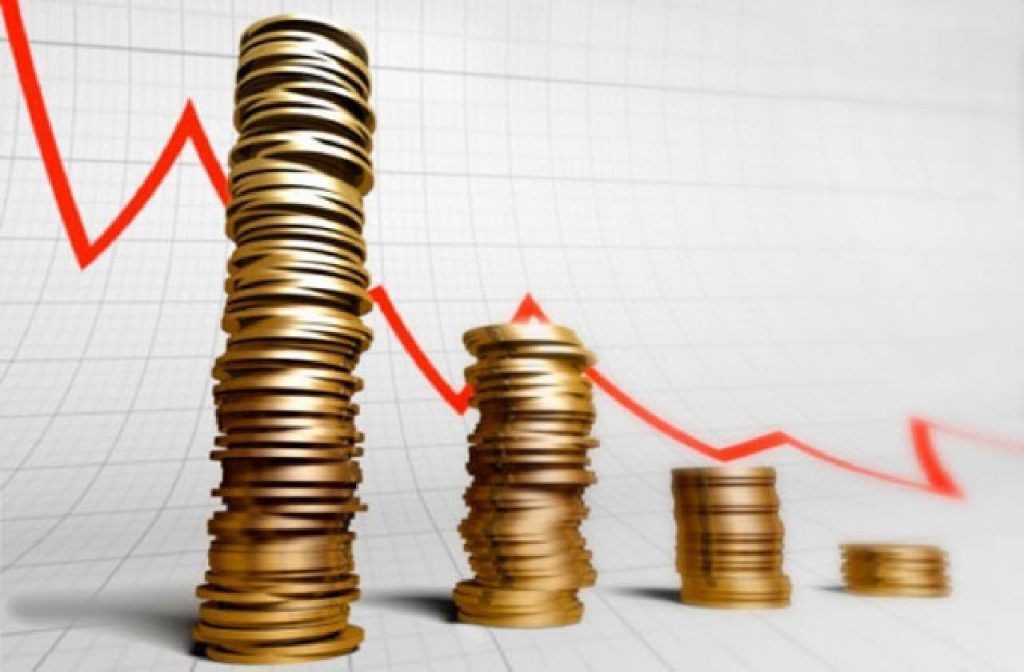Explainer: Implication of high inflation rate on Nigeria’s economy
The inflation rate in Nigeria surged to 18.6 per cent in June 2022 from the 17.71 per cent recorded in May 2022. This was disclosed in the recent NBS Consumer Price Index (CPI) report which measures the rate of change in prices of goods and services in the country. Nigeria’s inflation reached an all-high of […]

Inflation rate
The inflation rate in Nigeria surged to 18.6 per cent in June 2022 from the 17.71 per cent recorded in May 2022. This was disclosed in the recent NBS Consumer Price Index (CPI) report which measures the rate of change in prices of goods and services in the country.
Nigeria’s inflation reached an all-high of 18.6 per cent in June, making it the highest level in 5 years since January 2017 when it reached 18.6 per cent and stood at 18.72 per cent.
- Salient issues in the PDP victory at the Osun State governorship election
- Misfit/Misfit leadership, not Muslim/Muslim, is what haunts Nigeria
Inflation is the persistent increase in the prices of goods and services which translates as a decline in the purchasing power over time.
Food inflation rate
According to the NBS, the rate of food prices changed compared to the same period last year, primarily caused by COVID-19. On a month-on-month basis, the food sub-index increased to 2.05 per cent in June 2022 by 0.03 per cent from 2.01 per cent recorded in May 2022.
The food inflation index rose to 20.6 per cent in June 2022 from 19.5 per cent recorded in May and was due to increases in bread and cereals, potatoes, yam, and other tubers, meat, wine, fish, oil, and fat, and food products generally.
Other core inflations which exclude agricultural produce rose to 15.75 per cent in June from 14.9 per cent recorded in May and the highest increases were in the prices of gas, liquid fuel, flight tickets, clothes, solid fuel, road transport fee, cleaning among others.
States inflation rate
In June 2022, Bauchi recorded 21.99 per cent the highest in all items inflation followed closely by Kogi with 21.37 per cent, Ebonyi 20.73 per cent while Adamawa recorded 16.14 per cent, Sokoto 16.31 per cent, and Jigawa with 16.37 per cent considering them the slowest rise in headline year-on-year food inflation.
However, in food inflation, Kwara State had the highest at 25.62 per cent, Kogi at 24.81 per cent, and River at 24.34 per cent while Jigawa rose to 16.01 per cent, Sokoto 16.24 per cent, and Kaduna at 17.75 per cent making them the slowest in the year-on-year food inflation.
What does this mean for Nigerians?
High inflation can be attributed to insecurity, poor economic policies, pre-election campaign spending, and devaluation of the naira which went as high as N610 per dollar against the official exchange rate, making it hard for importers of goods to have access to adequate foreign currency.
The consistent rise in inflation rates has left many Nigerians poor, considering how every commodity in the market has tripled and the inflation rate is beyond what the NBS estimated.
Many Nigerians have reduced their consumption due to the high prices of commodities in the market, and macroeconomic studies have shown that consumption expenditure is one of the major drivers of economic growth which means that a reduction in private consumption in the country may affect the GDP growth.
Insecurity on another hand has prevented farmers from spending enough time on their farms because of fear of being killed or kidnapped by bandits.
What can individuals do?
Interestingly, individuals can decide to manage the inflation rate by;
Modifying their budget and tracking spending habits to cut down or cut off on unimportant things, as renegotiating every deal becomes necessary.
Exploring multiple streams of income has become a necessity, therefore, evaluating one’s income and expenditure becomes a priority.
Savings and investments no matter how little will help when there is an emergency or unforeseen events and it helps to build discipline and enable less spending.
However, government can come in with better economic policies to help curb the constant rise in inflation.
How can the high inflation rate be curbed?
In Nigeria, the recent inflation rate shows that farmers need to be supported by the government so they can practice mechanized farming to produce adequate food for consumption. Monetary and fiscal policies should be put in place to manage the exchange rate.
Infrastructure development is a key element for investment to strive in the country and it can be a way forward in restoring peace and security.
The Nigerian government should employ the services of qualified economic managers to formulate and implement credible economic policies to drive Nigerian economic growth and development.
